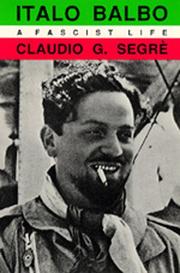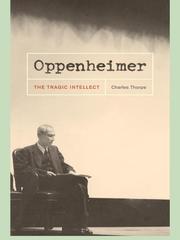| Listing 1 - 5 of 5 |
Sort by
|
Book
ISBN: 3161566920 3161566912 Year: 2019 Publisher: Mohr Siebeck
Abstract | Keywords | Export | Availability | Bookmark
 Loading...
Loading...Choose an application
- Reference Manager
- EndNote
- RefWorks (Direct export to RefWorks)
How did the drastic experiences of the turbulent twentieth century affect the works of a legal historian? What kind of an impact did they have on the ideas of justice and rule of law prominent in legal historiography? Ville Erkkilä analyses the way in which the concepts of 'Rechtsgewissen' and 'Rechtsbewusstsein' evolved over time in the works of the prestigious legal historian Franz Wieacker. With the help of previously unavailable sources such as private correspondence, the author reveals how Franz Wieacker's personal experiences intertwined in his legal historiography with the tradition of legal science as well as the social and political destinies of twentieth century Germany.
Derecho --- Historia --- Wieacker, Franz, --- Law --- History. --- Wieacker, F. --- Intellectual History --- National Socialism --- 20th century --- legal science --- historical biography --- Rechtsgeschichte
Book
ISBN: 1760463051 1760463043 Year: 2019 Publisher: ANU Press
Abstract | Keywords | Export | Availability | Bookmark
 Loading...
Loading...Choose an application
- Reference Manager
- EndNote
- RefWorks (Direct export to RefWorks)
"‘Teacher for Justice is a major contribution to the history of the women’s movement, working‑class activism and Australian political internationalism. But it is more than this. By focusing on the life of Lucy Woodcock – an unrecognised and under-researched figure – this book rewrites the history of twentieth-century Australia from the perspective of an activist who challenged conventions to fight for gender, race and class equality, exploring the complex and multi-layered intersections of these aspects. It explores Woodcock’s personal relationships and the circles she mixed in and the friendships she forged, as well as the conventions she challenged as a single woman in possibly a same-sex relationship. The book makes a key contribution to the history of progressive education and the experience of women teachers. Above all, it charts the life of a transnational figure who made connections globally and, in particular, with refugees and with women in India and the Asian region. It is a detailed, thoroughly researched and richly textured history which places Woodcock within the context of the times in which she lived.’Joy Damousi, Professor of History, University of Melbourne‘Meet Lucy Woodcock, a complex, undaunted woman in a tough and changing world. From her role as a public school principal in Depression and wartime, to her union and feminist organising, to her transnational engagements for peace, this clear and thoughtful book brings to life forgotten forms of activism. It’s the gripping story of how Lucy navigated the minefields of gender, class, race and coloniality to change her world.’Raewyn Connell, Professor Emerita, University of Sydney‘Just over a century ago, the last of the pupil-teachers, Lucy Woodcock, co-founded the NSW Teachers Federation. So many of the principles and traditions that underpin our union today can be traced back to the lifelong work of Lucy Woodcock. She fought for the industrial rights of teachers deep in the knowledge of the broader social and economic context in which she lived and worked. Too often the role of working-class women whose influence is profound is ignored. This biography installs Lucy Woodcock into her rightful place as pivotal player in the history of twentieth-century Australia.’Maurie Mulheron, President, NSW Teachers Federation‘A fascinating history of a fascinating woman: Lucy’s interests were so broad and so modern – equal pay, racism, internationalism, Indigenous rights and anti-war struggles were all part of Lucy’s world. She had a vision beyond nationalism, championed the cause of world peace when peace was being treated as a dirty word and saw women as global citizens. Lucy was one of the heroes of our disgracefully unfinished Equal Pay struggle.’Hon Dr Meredith Burgmann, anti-racism and peace activist, former President of the NSW Legislative Council"
Feminism --- Women human rights workers --- Human rights workers --- Women social reformers --- Emancipation of women --- Feminist movement --- Women --- Women's lib --- Women's liberation --- Women's liberation movement --- Women's movement --- Social movements --- Anti-feminism --- History --- Emancipation --- Lucy Woodcock --- historical biography --- education --- equality --- advocacy

ISBN: 0520910699 0585218196 9780520910690 9780585218199 0520058666 0520071999 Year: 1987 Publisher: Berkeley University of California Press
Abstract | Keywords | Export | Availability | Bookmark
 Loading...
Loading...Choose an application
- Reference Manager
- EndNote
- RefWorks (Direct export to RefWorks)
Pioneering aviator, blackshirt leader, colonial governor, confidante and heir-apparent to Benito Mussolini, the dashing and charismatic Italo Balbo exemplified the ideals of Fascist Italy during the 1920s and 30s. He earned national notoriety after World War I as a ruthless squadrista whose blackshirt forces crushed socialist and trade union organizations. As Minister of Aviation from 1926 to 1933, he led two internationally heralded mass trans-Atlantic flights. When his aerial armada reached the U. S., Chicago honored him with a Balbo Avenue, New York staged a ticker-tape parade, and President Roosevelt invited him to lunch. As colonial governor from 1933 to 1940, Balbo transformed Libya from backward colony to model Italian province. To many, Italo Balbo seemed to embody a noble vision of Fascism and the New Italy.
Fascism --- Fascists --- Cabinet officers --- Air pilots --- History --- Balbo, Italo, --- Balbo, Italo --- Italy --- Politics and government --- Air pilots. --- Airline pilots --- Airplane pilots --- Airplanes --- Aviators --- Pilots (Aeronautics) --- Flight crews --- Pilots --- 1920s. --- 1930s. --- aerial armada. --- authoritarian government. --- aviation. --- aviator. --- balbo avenue. --- biography. --- blackshirts. --- colonial governor. --- early 20th century. --- europe. --- european history. --- famous flights. --- famous italians. --- fascism. --- fascist figures. --- fascist italy. --- historians. --- historical biography. --- historical figures. --- ideological. --- italo balbo. --- libya. --- mussolini. --- nonfiction. --- political biography. --- political history. --- political leaders. --- roosevelt. --- squadrista. --- world war i. --- wwi.

ISBN: 1281966657 9786611966652 0226798488 9780226798486 0226798453 9780226798455 Year: 2006 Publisher: Chicago University of Chicago Press
Abstract | Keywords | Export | Availability | Bookmark
 Loading...
Loading...Choose an application
- Reference Manager
- EndNote
- RefWorks (Direct export to RefWorks)
At a time when the Manhattan Project was synonymous with large-scale science, physicist J. Robert Oppenheimer (1904–67) represented the new sociocultural power of the American intellectual. Catapulted to fame as director of the Los Alamos atomic weapons laboratory, Oppenheimer occupied a key position in the compact between science and the state that developed out of World War II. By tracing the making—and unmaking—of Oppenheimer's wartime and postwar scientific identity, Charles Thorpe illustrates the struggles over the role of the scientist in relation to nuclear weapons, the state, and cultu
Physicists --- Scientists --- Science --- Science and state --- Atomic bomb --- Science and ethics --- Professional employees --- Intellectual life --- Moral and ethical aspects. --- History. --- Oppenheimer, J. Robert, --- Ou-pên-hai-mo, --- Oppenheimer, Robert, --- Oppenheimer, Julius Robert, --- History --- Moral and ethical aspects --- j robert oppenheimer, theoretical physicist, physics, los alamos laboratory, war, atomic bomb, manhattan project, 20th century, nuclear weapons, trinity test, science, scientist, united states of america, american history, historical, biography, biographical, intellectuals, morality, ethics, ethical, government, wartime, politics, political influence, identity, representation, power, vocation.
Book
ISBN: 0520282949 0520958551 9780520282605 0520282604 9780520282940 9780520958555 1306992818 9781306992817 Year: 2014 Publisher: Berkeley
Abstract | Keywords | Export | Availability | Bookmark
 Loading...
Loading...Choose an application
- Reference Manager
- EndNote
- RefWorks (Direct export to RefWorks)
In Life Beside Itself, Lisa Stevenson takes us on a haunting ethnographic journey through two historical moments when life for the Canadian Inuit has hung in the balance: the tuberculosis epidemic (1940's to the early 1960's) and the subsequent suicide epidemic (1980's to the present). Along the way, Stevenson troubles our commonsense understanding of what life is and what it means to care for the life of another. Through close attention to the images in which we think and dream and through which we understand the world, Stevenson describes a world in which life is beside itself: the name-soul of a teenager who dies in a crash lives again in his friend's newborn baby, a young girl shares a last smoke with a dead friend in a dream, and the possessed hands of a clock spin uncontrollably over its face. In these contexts, humanitarian policies make little sense because they attempt to save lives by merely keeping a body alive. For the Inuit, and perhaps for all of us, life is "somewhere else," and the task is to articulate forms of care for others that are adequate to that truth.
Inuit --- Tuberculosis --- Innuit --- Inupik --- Eskimos --- Consumption (Disease) --- Lungs --- Phthisis --- Pulmonary tuberculosis --- TB (Disease) --- Chest --- Mycobacterial diseases --- Mycobacterium tuberculosis --- Medical care --- History. --- Health and hygiene --- Diseases --- Inuits --- Health Status --- Delivery of Health Care --- Suicide --- Tuberculosis, Pulmonary --- History, 20th Century --- History, 21st Century --- 21st Cent. History (Medicine) --- 21st Cent. History of Medicine --- 21st Cent. Medicine --- Historical Events, 21st Century --- History of Medicine, 21st Cent. --- History, Twenty-first Century --- Medical History, 21st Cent. --- Medicine, 21st Cent. --- 21st Century History --- 21st Cent. Histories (Medicine) --- 21st Cent. Medicines --- 21st Century Histories --- Cent. Histories, 21st (Medicine) --- Cent. History, 21st (Medicine) --- Cent. Medicine, 21st --- Cent. Medicines, 21st --- Century Histories, 21st --- Century Histories, Twenty-first --- Century History, 21st --- Century History, Twenty-first --- Histories, 21st Cent. (Medicine) --- Histories, 21st Century --- Histories, Twenty-first Century --- History, 21st Cent. (Medicine) --- History, Twenty first Century --- Medicines, 21st Cent. --- Twenty-first Century Histories --- Twenty-first Century History --- 20th Cent. History (Medicine) --- 20th Cent. History of Medicine --- 20th Cent. Medicine --- Historical Events, 20th Century --- History of Medicine, 20th Cent. --- History, Twentieth Century --- Medical History, 20th Cent. --- Medicine, 20th Cent. --- 20th Century History --- 20th Cent. Histories (Medicine) --- 20th Century Histories --- Cent. Histories, 20th (Medicine) --- Cent. History, 20th (Medicine) --- Century Histories, 20th --- Century Histories, Twentieth --- Century History, 20th --- Century History, Twentieth --- Histories, 20th Cent. (Medicine) --- Histories, 20th Century --- Histories, Twentieth Century --- History, 20th Cent. (Medicine) --- Twentieth Century Histories --- Twentieth Century History --- Level of Health --- Health Level --- Health Levels --- Status, Health --- Medical care&delete& --- History --- Health and hygiene&delete& --- history --- Canada. --- E-books --- #SBIB:39A74 --- #SBIB:39A9 --- Etnografie: Amerika --- Medische antropologie / gezondheid / handicaps --- anthropologist --- anthropology --- canadian history --- canadian inuit --- collection of stories --- ethnographer --- ethnography --- historical biography --- mental health --- new life --- professor --- psychologist --- reincarnation --- sociologist --- somewhere else --- suicide epidemic --- tuberculosis epidemic --- understanding our world --- SOCIAL SCIENCE / Anthropology / General --- Canada --- General Health --- General Health Level --- General Health Status --- Overall Health --- Overall Health Status --- General Health Levels --- Health Level, General --- Health Status, General --- Health Status, Overall --- Health, General --- Health, Overall --- Level, General Health --- Levels, General Health --- Status, General Health --- Status, Overall Health --- Aleuts --- Inuk --- Inupiats --- Kalaallits --- Aleut --- Eskimo --- Inupiat --- Kalaallit --- Alaskan Natives --- Alaska Natives --- anthropologist. --- anthropology. --- canadian history. --- canadian inuit. --- collection of stories. --- ethnographer. --- ethnography. --- historical biography. --- mental health. --- new life. --- professor. --- psychologist. --- reincarnation. --- sociologist. --- somewhere else. --- suicide epidemic. --- tuberculosis epidemic. --- understanding our world.
| Listing 1 - 5 of 5 |
Sort by
|

 Search
Search Feedback
Feedback About UniCat
About UniCat  Help
Help News
News